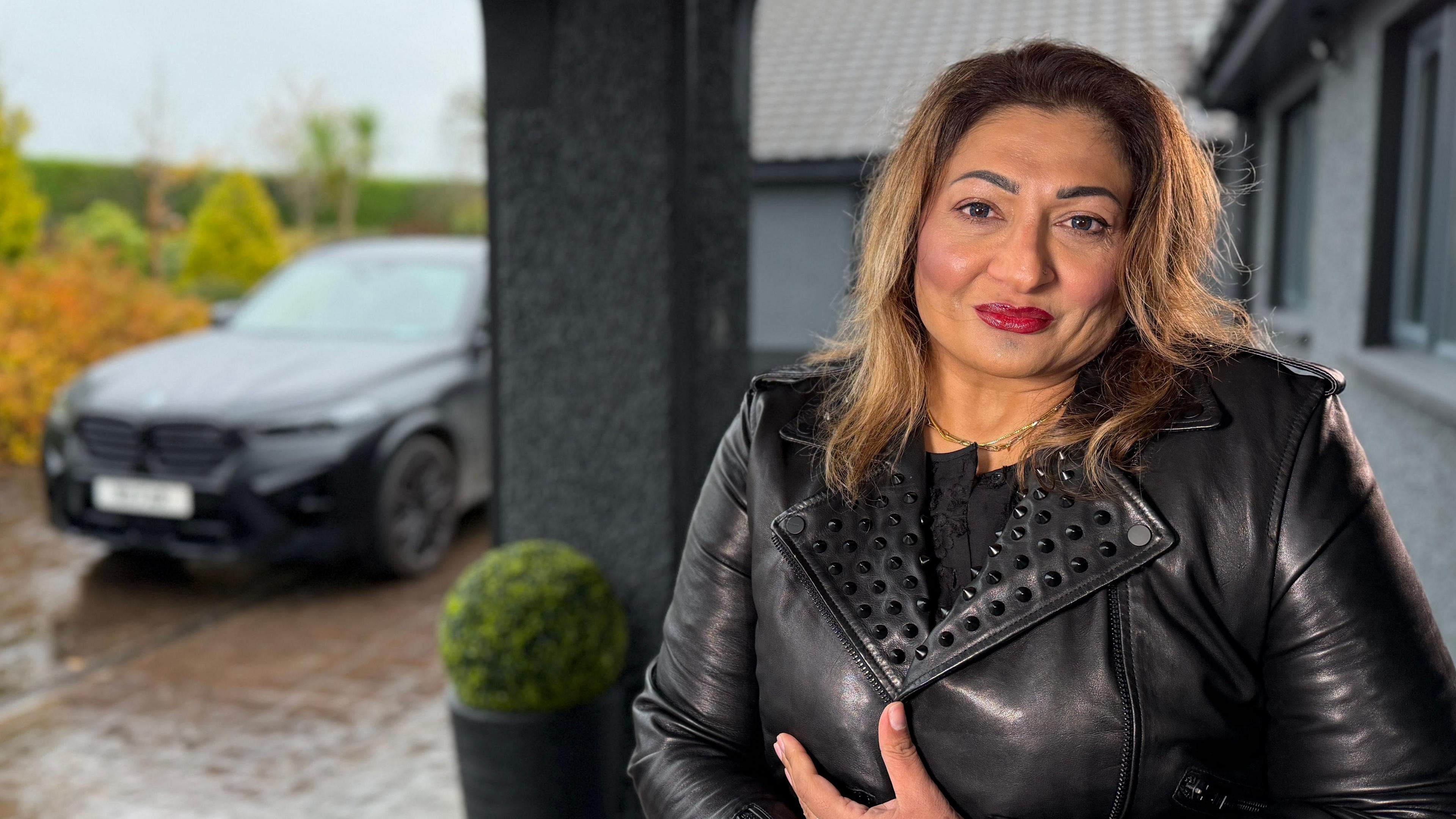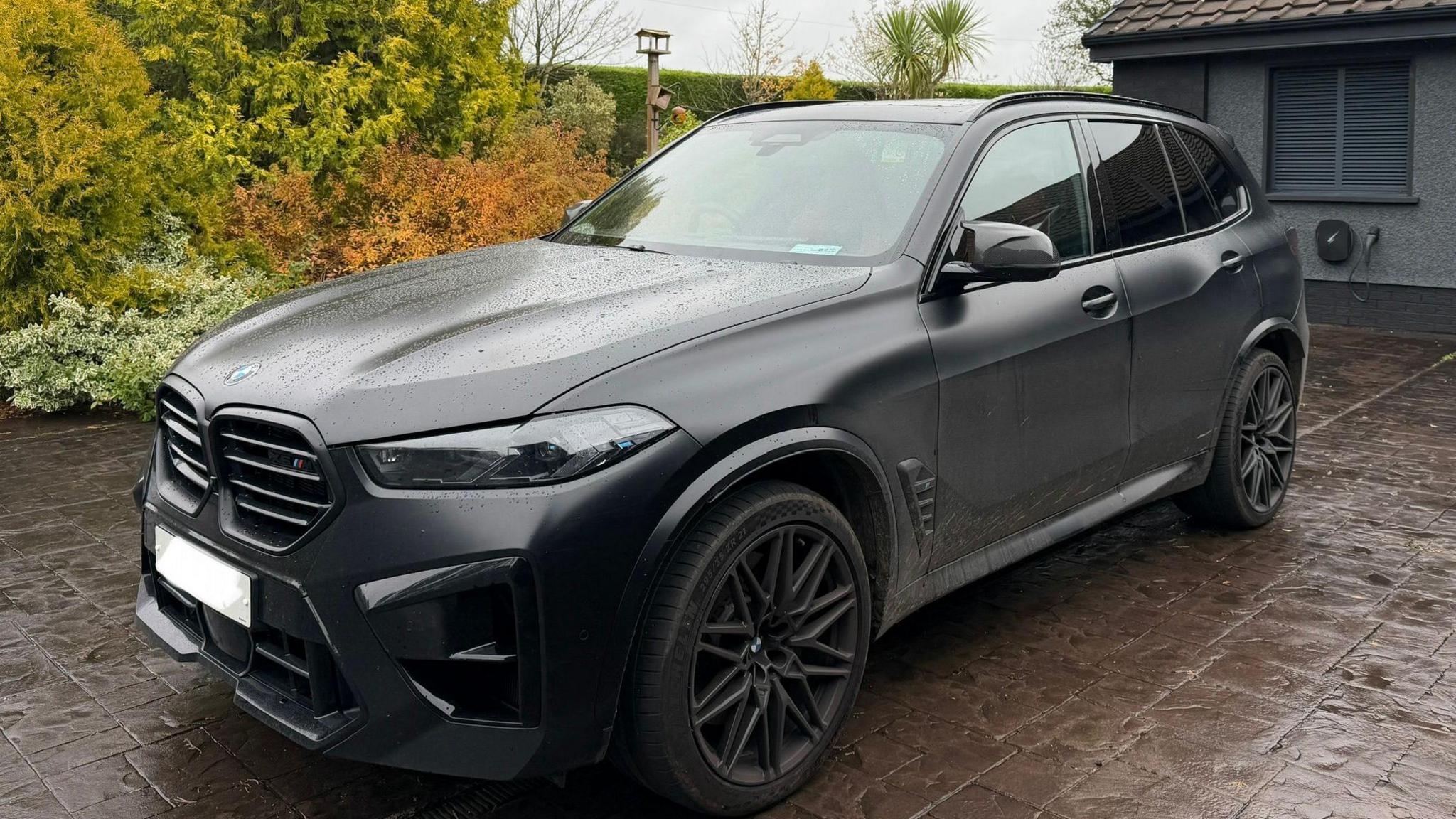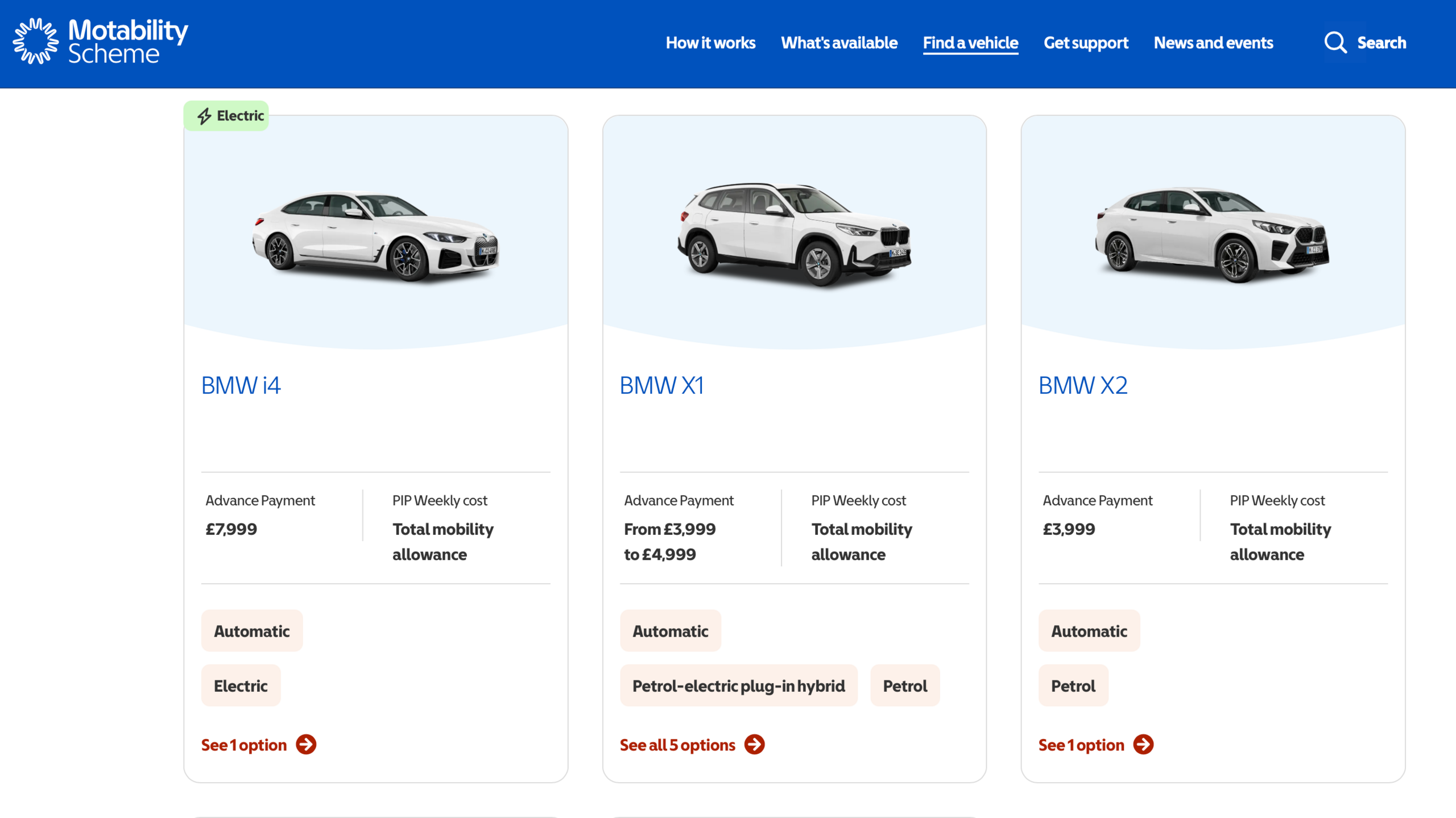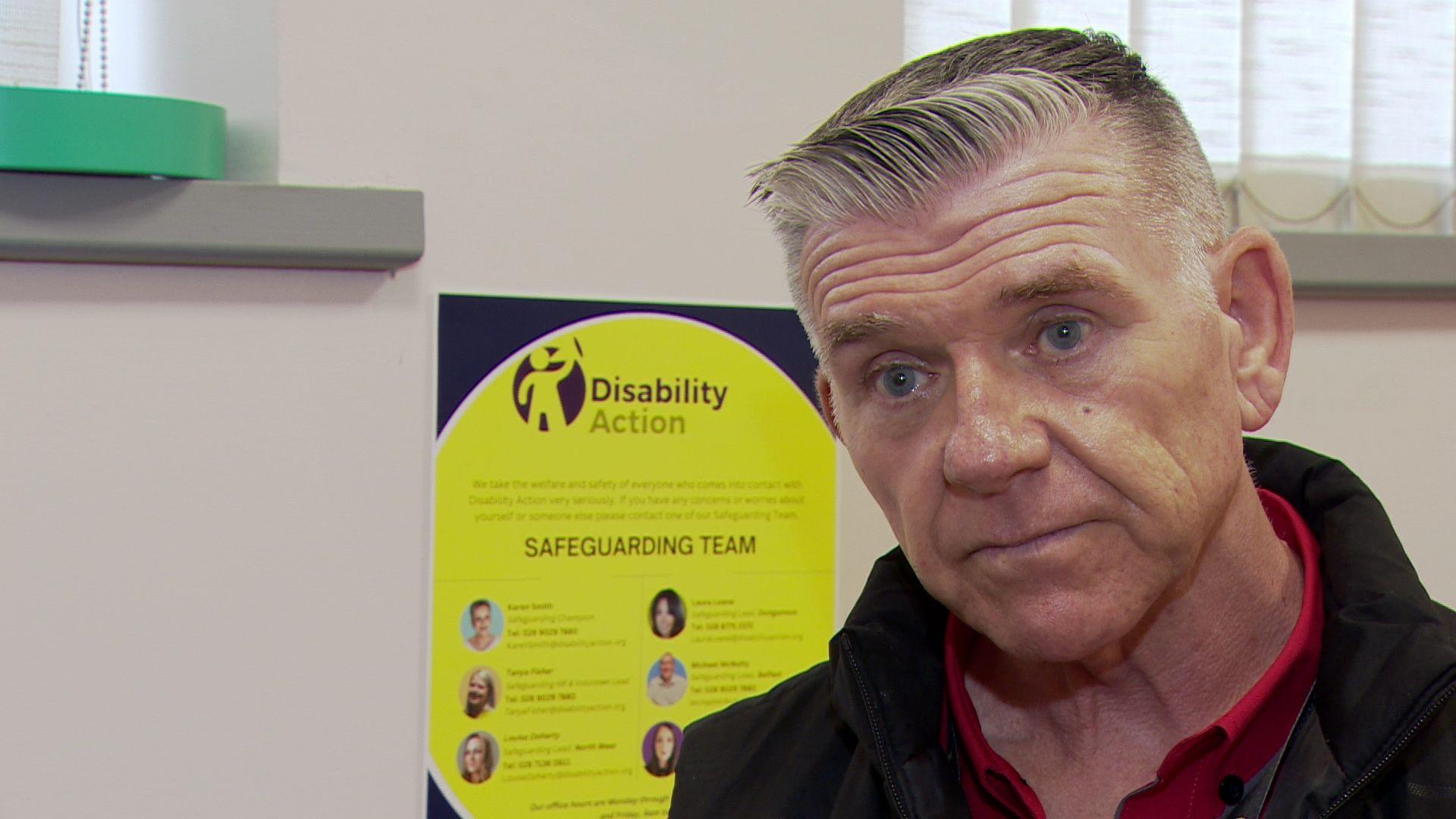'Just because I'm disabled, why can't I drive what I want?'

Farah Black said she cried the day she picked up the car she got through the Motability scheme
- Published
A disabled woman in Northern Ireland has criticised potential changes being considered to a vehicle scheme which gave her the confidence to drive again.
The Motability scheme allows people in receipt of certain disability benefits to lease vehicles more cheaply including cars, scooters, and powered wheelchairs.
It is understood the Chancellor of the Exchequer Rachel Reeves is considering making changes to the scheme over concerns taxpayers are subsidising premium cars rather than providing essential mobility.
Farah Black is one of more than 50,000 people in Northern Ireland who uses the scheme.
Following a serious injury and life-threatening sepsis, she had her leg amputated and now uses a wheelchair.
For 12 years, she did not drive at all – but said the Motability scheme gave her the confidence and the financial support, to start again.
"The day I picked up my car I cried," she said.
"I'm getting emotional now thinking about it. Prior to that I was stuck inside. To be able to get in the car and drive. Oh my goodness, that is... wow."
She decided to pay extra for a luxury BMW, taking the additional cost as an advance payment, as all Motability users do.
One source within the treasury told BBC News NI changes to the scheme are being considered, with the chancellor being concerned about potential "unfairness".
"This isn't about disabled people doing anything wrong – it's about fixing a scheme that's lost its focus," the source said.

Farah Black paid extra so she could get the luxury car she wanted
About 50,000 luxury cars are currently leased through the scheme across the UK.
It is understood the changes to the scheme would relate to restrictions on the types of vehicles allowed, the removal of tax exemptions and to eligibility.
Ms Black said her car's additional automation and other safety features were part of what allowed her to feel confident returning to the road.
"You still have to put down quite a huge deposit and you're still covering the difference so I don't quite understand why this affects the Treasury?" she said.
"We should all have a choice, just because I'm disabled - why can I not have a choice and drive what I want?"
Her car is adapted for her needs as a wheelchair user – with hand controls on the steering wheel.
Ms Black said she feels the implied criticism of cars like hers stigmatises disabled people.
"I find it degrading almost," she said.
"When anything goes wrong, it's the disabled who have to pay for something, or we're taking the mickey or we're trying to get more from the state. That is not how it is for us. You have no idea how difficult life is for the disabled."

About 50,000 luxury cars are currently leased through the scheme across the UK
A Treasury source told BBC News NI the majority of cars in the scheme have no adaptation for disabled users.
Some cars identified by the Treasury as luxury models were available on the Motability Scheme's car finder portal on Monday, with an advance payment of up to £8,000 on the lease.

Ciaran Gorman of Disability Action said unadapted cars are an important part of the Motability scheme
Ciaran Gorman, a driving instructor and medical assessor working for the charity Disability Action, said non-disabled drivers and unadapted cars are an important part of the Motability scheme, but that they can contribute to public misunderstanding of it.
"Some people don't need adaptations," he said.
"Some people can't drive, some people have someone to drive for them, whether that's a family member or a carer. Children have Motability vehicles and obviously they don't drive."
"So there are many reasons why it may not be the stereotypical disabled person that's seen driving a car."
Motability is operated by a private company, overseen by a charity.
Motability's financial reserves have doubled to £4 billion since the pandemic, mostly due to the increased value of the leased vehicles driven by scheme users.
The scheme accounts for roughly 40% of all new car sales in Northern Ireland
Disability Action's Head of Accessibility Nuala Toman has called on Government to abandon its plans, saying the moves would, "punish people for being disabled and push many deeper into poverty and isolation."
She said removing VAT exemptions would increase costs by about "£3,000 for even the most basic models, making independent mobility unaffordable for many."
Disabled people are more likely to live in households without access to a car, to struggle with public transport and to experience financial hardship, according to a study by disability charity Transport for All, external.
The Motability scheme is intended to help address the issues by allowing disabled people to hand over a portion of their benefits to access cheaper leases for new cars.
The scheme will also fund necessary adaptations, like hand controls for wheelchair users, provide insurance and comprehensive breakdown cover.